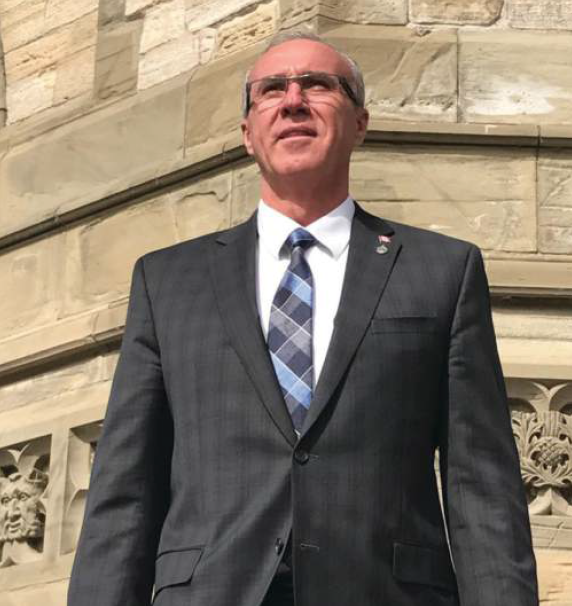Current Temperature
22.3°C
Motz says budget misses the mark
Posted on April 22, 2021 by admin Glen Motz
Glen MotzBy Collin Gallant
Southern Alberta Newspapers
Medicine Hat-Cardston-Warner MP Glen Motz says there could be positives in the federal budget announced Monday, but only if executed properly by the Liberal government. But, the opposition MP says heavy spending, little new revenue and growing debt raises questions for him about sustainability of budget points from Finance Minister Chrystia Freeland, such as a childcare program.
“There are far more things that are problematic and it doesn’t present the plan Canadians are asking for,” he told reporters on a conference call Monday afternoon. “We need to be talking about an economic recovery and that has to include all sectors of the economy.” Freeland couched the budget, the first of the Liberal minority government in two years, as extending the lifeline provided by government to businesses and individuals during the COVID-19 pandemic.
“This budget is about finishing the fight against COVID,” Freeland said Monday.” It’s about healing the economic wounds left by the COVID recession. And it’s about creating more jobs and prosperity for Canadians in the days and decades to come.” It extends programs like wage subsidies, adds a rehiring credit for companies, as well as increases environmental targets and earmarks $17 billion in related spending, tax credits and no-interest loans to homeowners.
Motz says Canadians want infrastructure spending aimed to spur economic growth, not “social infrastructure” like the Liberals are proposing. Motz, the member from Medicine Hat-Cardston-Warner, says the Liberals “want to test an out of control debt plan.” He says all Canadians are calling for jobs as a top-priority, and increasing wages through industrial growth. Motz says natural resource development, like oil and gas, as well as agriculture has largely been left out of the 700-plus page budget document.
The federal deficit that was $354 billion in 2020-21, would fall to $154 billion in the current year, then lessen over time, but by 2025-26 fiscal year the national debt would double from today to sit at $1.4 trillion. Servicing that debt will eventually require payments of $10 billion per year.
“That’s a lot of childcare,” said Motz, adding the childcare program will help “some working Canadians,” but it’s been promised for decades and depends on provincial governments. “You wonder if it will be sustainable in the long run.” The five-year, $30 billion childcare program would aim to cut the cost of daycare in half next year then set a ceiling at $10 per day per child once agreements are settled with the provinces.
Those receiving old age security benefits would also receive another $500 bonus payment this summer, then a 10 per cent increase in 2022. Motz echoed his leader, Erin O’Toole, who told national press Canadians wanted a pandemic budget, but got an “election budget.” “We’re seeing spending on key voting blocks, like women, seniors, students,” said Motz, further stating he supports emergency aid to out-of-work Canadians, but says their situations have been made worse by Ottawa’s handling of the pandemic. “At some point, there will need to be a wind down,” he said. The budget extends wage subsidy programs by another three months to September and the Canada Emergency Recovery Benefit (CERB) will be extended for 12 weeks.
The government’s climate action goal would increase to reducing emissions from 2005 levels by 36 per cent by 2030, up from the previous 30 per cent goal, new tax breaks for companies that manufacture net-zero technology and puts $4 billion toward no-interest loans to homeowners to spur energy-conscious renovations
Leave a Reply
You must be logged in to post a comment.

